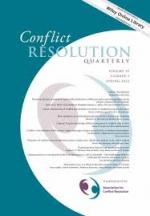Citation:

Date Published:
2025Abstract:
This study examines the role of spontaneous intergroup contact in fostering social resilience in ethnically mixed urban settings, focusing on Israeli mixed cities. Based on a survey conducted in September 2021 involving 944 residents of diverse city types and a university survey of Jewish and Palestinian students, it explores the extent to which unmediated, unplanned interactions (spontaneous contact) among individuals from different ethnic and social backgrounds predicts their ability to cope with and recover from outbreaks of ethnic violence. Key findings indicate that residents of mixed cities show more favorable attitudes towards outgroup members than those in homogeneous cities, suggesting that spontaneous contact reduces prejudice. The study reveals a correlation between higher social proximity to outgroup members and lower levels of tension during periods of conflict. Unexpectedly, a decrease in social proximity among university students was observed over the course of an academic year, potentially due to the eruption of interethnic violence. However, students who experience frequent spontaneous contact displayed greater resilience, maintaining positive attitudes amidst conflict. This research underscores the significance of spontaneous contact in mixed cities and heterogeneous environments in promoting social resilience and a sense of coexistence. It suggests that everyday interactions in diverse environments are crucial for managing and mitigating the impacts of intergroup tensions and conflicts.
